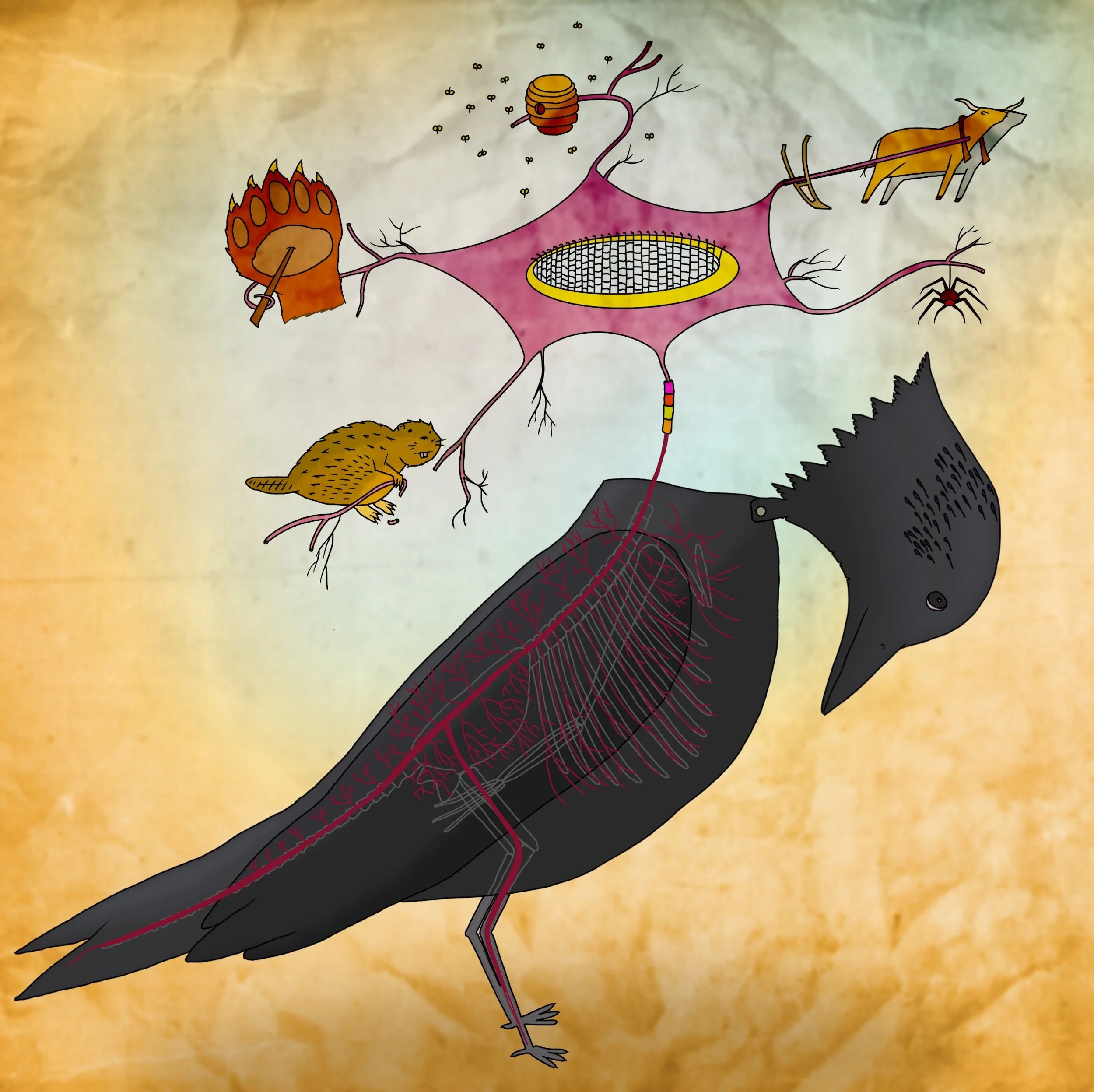ANXIOUS BEHAVIOR
Jared Povanda
The way blackbirds solve for
winter. How upset I am
without feathers. No black collar, no tailwind. On the floor,
regardless, crying. Health insurers hate me. I hate me too,
I tell Denice from Toledo, so who wants me
in the divorce? My days are all light haloes and
automation. I don’t look at sunsets like I used to. Honeybees mob
in flung distance; worries oxen the sky across my forehead, owl down inside the
dales of my cheeks. Charred land and brawny newscasts
tracking Canadian wildfires from helicopter. New York stained tangerine
in June. Below
my bedroom window, coyotes harangue. I imagine they’re wolves when
I’m scared. I don’t know what that says
about me. It means I want
a wolf. I want to know enough to name
the way wolves scent along the wind with senses so superior
they stir storms of electrical signaling after every inhale. And the beaver,
how her teeth curve against different kinds of trees. I also crave
empty spaces. Hunger
gaps. The sensation
of biting a male spider raw. To lick a bear cub's paw after a thorn. I catalog
the underside of a tern’s upturned wing, a pair of gulls, a brown bat’s sewing
flight. Swifts spend so much of their lives planning
around incoming storms. Anxious
behavior? We’re similar animals: ozone
stung and afraid
of the horizon. My mind,
a fishing net. Too many holes; the trout swim
through. Off the path
white bones lance a village of mushrooms. The blackbirds have been
and gone. What I know
I know without help: By now
the dead carry different names.
Jared Povanda is a writer, poet, and the co-EIC of the literary journal Bulb Culture Collective. He has been nominated for the Pushcart Prize, Best of the Net, and Best Microfiction, and you can find his work in numerous literary journals including Wigleaf and Passages North. He lives in New York.

Contributor’s Note:
I wrote the first draft of what would become “Anxious Behavior” in the winter of 2023, but the only bit that stayed from the first to the last draft was, “a village of mushrooms.” When we talk about eco-poetry, I can’t help thinking of community. To reverse—or, at this point—to slow climate disruptions around the world, we have to work together. Idealistic, of course, but what’s the point of poetry if not to be idealistic? A village of mushrooms, a city of humans—both places of gathering, of communion, even if the image of the former is composed at a much smaller scale. There’s nothing small about the totality of nature, though. Its force or its breadth. And that’s what I wanted to capture here most: the movements and echoes of so many different kinds of creatures contrasted with how artificial and autonomous, how increasingly technological, our lives are becoming. I’ve observed some of these animals myself. Some, I’ve read about only in books. How canines scent; the idea to explore and make metaphor of that signaling came from Ed Yong’s An Immense World, and Helen Macdonald’s Vesper Flights had me seeing swifts from an entirely new vantage. Writers form communities too. Lineages. Where pieces of knowledge dapple atop one another like leaves. And it is our duty, I think, to keep talking about the world, about nature. To understand what we have to lose. To reckon with why so many of us are no longer embracing natural spaces and what that means.
Editor’s Note:
I’ve read Jared Povanda’s “Anxious Behavior” at least two dozen times and though its genius still escapes me, I feel it almost tangibly in every line. I love how seamlessly the poem weaves the natural world with the inner turmoil of its speaker. “How upset I am / without feathers. No black collar, no tailwind. On the floor, / regardless, crying. Health insurers hate me.” Music, too, rifts through the poem, carrying one through the maze-like wind-strewn lines. In his seminal book on eco-poetry (Redstart: An Ecological Poetics), Forrest Gander avoids strictly defining its very nature (pun intended), instead opting to view the eco-poem as both an extension of and immersion within the self. Likewise, Jared’s ecopoetics, if you will, not even for a second depart from the personal, choosing instead to intertwine with the political, the radical. I truly feel there is no better way to write poetry that tackles issues far beyond us, as wide and vast as the Earth. Ultimately, though almost all of the 392 submissions we received this month highlighted the importance of ecological preservation, it’s the impeccable craftsmanship of “Anxious Behavior” that stood out to me. The way Jared has managed to estrange the clause is really fascinating — “Off the path / white bones lance a village of mushrooms. The blackbirds have been / and gone.” And those line breaks throughout are doing so much work of unfamilarizing, jarring, disturbing. This poem is elegant in the way it articulates a deep collective despair while also subtly celebrating Earth's wonders.


